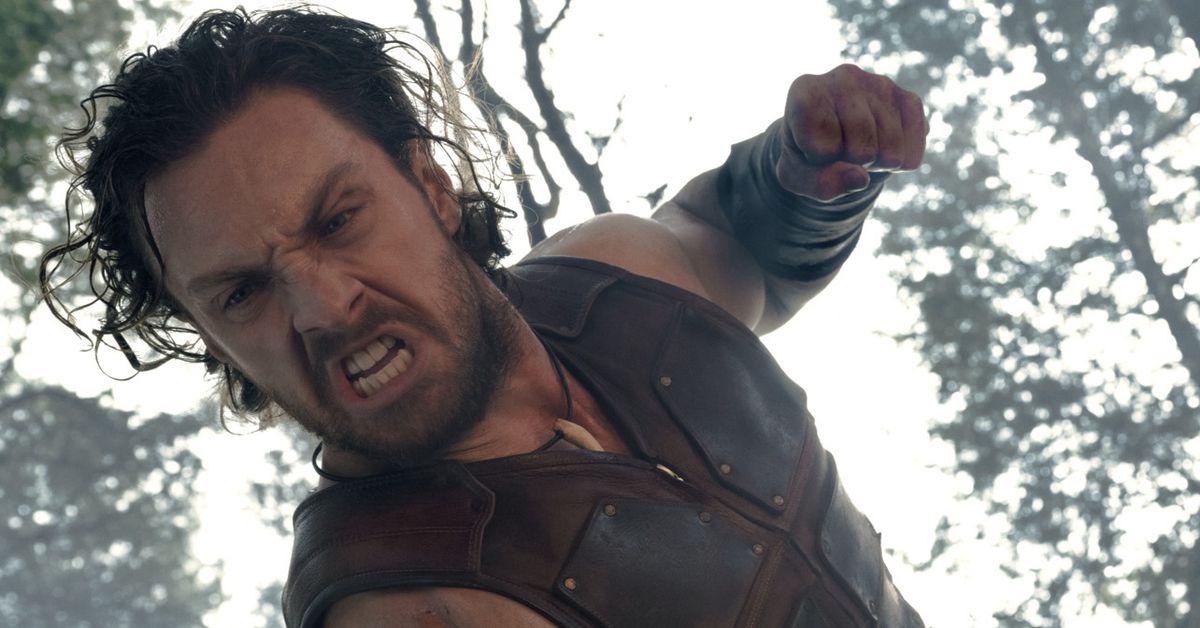Regardless of what the studio insists on calling it internally, Sony’s Spider-Man Universe of live-action features will always be better known as “those Spider-Man spinoffs where Spider-Man never shows up for legal reasons.” Sony’s plan to build an entire franchise out of standalone films about Peter Parker’s nemeses always read as a transparent attempt at riding Marvel Studios’ coattails post-Spider-Man: Homecoming. And the idea also just seemed kind of silly because of how large Spider-Man typically features in stories about characters like Venom, Morbius, and Madame Web.
Though none of Sony’s Spider-Man-less Spider-Man movies have been sterling pieces of cinema, the goopy, slapstick romance of the Venom series was a surprise delight. Morbius was a mess of epic proportions, but Madame Web’s period-specific camp made it feel like Sony might have been well on its way to settling into something that was at least fun, if not particularly good. There was no telling what to expect from Margin Call director J. C. Chandor’s take on Kraven the Hunter, a Spider-Man rogue from the ‘60s best known for showing off his abs while sporting a vest fashioned out of a lion’s head.
The movie’s R-rating and trailers suggested that Sony wanted to go darker while reframing Kraven as a gruesome antihero. And the fact that the project was even making its way to theaters implied that Sony had a plan in mind for its central character. That’s not at all the impression you get actually watching Kraven the Hunter, which feels like a perfect snapshot of everything that has been disappointing about the cinematic web Sony’s weaving. It’d be nice if this was another one for the “so bad it’s kinda good” bucket, but that would be giving the film too much credit.
Funnily, Kraven the Hunter feels the tiniest bit like a Spider-Man subplot as it introduces you to Sergei Kravinoff (Aaron Taylor-Johnson), a Russian big game hunter who finds himself locked up in a remote prison. To the guards and other muscle-bound inmates pumping iron in the freezing winter, Sergei doesn’t look like all that much of a threat. But when a couple of guys try to jump him, they barely have time to react before Sergei pounces on and murders them like an animal with a taste for blood. That killer instinct is part of why he introduces himself as “Kraven” to his victims, and the fact that he’s been traveling around the world to take out various crime lords is why he’s more broadly known as “The Hunter.”
In Marvel’s comics, Kraven’s fixation on hunting animals is what leads to his obsession with fighting Spider-Man. Where most villains are down to get the job done by any means necessary, Kraven has a strict code of honor and prefers to hunt his prey fairly. For obvious IP rights reasons, the new movie changes things up a bit by making Kraven something of an animal conservationist. But Richard Wenk, Art Marcum, and Matt Holloway’s script actually keeps a lot of Kraven’s comics lore intact, like his estrangement from his abusive father Nicolai (Russell Crowe).
Like his comics counterpart, this Kraven also has a complicated relationship with his half-brother Dmitri (Fred Hechinger), but here, the two siblings are much closer emotionally because of their shared traumatic upbringing. You can feel the movie trying to humanize a younger version of Kraven (Levi Miller) as it flashes back to the fateful moment when he’s mauled by a lion while protecting Dmitri (Billy Barratt) during a hunting trip in Ghana. That’s also when Kraven first encounters a girl named Calypso (Diaana Babnicova in the past, Ariana DeBose in the present) whose vaguely-witchy intuition prompts her to save his life.
To some extent, Kraven the Hunter understands how, in lieu of giving its star a quippy hero to go up against, it has to flesh out his dynamics with other characters in order to make audiences see him as the sort of figure who can carry a feature-length story. But as much as the movie is clearly trying to sell you on the idea of Kraven as a brooding, misunderstood leading man, it never really works because of how little chemistry there is between basically the entire cast.
There’s an appropriately furious, kinetic energy to Kraven the Hunter’s gory fight sequences that actually do a solid job of making Kraven’s powers — a mix of super strength, agility, and heightened senses — look pretty cool. When the movie slows down to focus on his interactions with people, though, it often feels like Taylor-Johnson and his scene partners are acting past one another and not quite connecting on an interpersonal level.
It doesn’t help that much of Kraven the Hunter’s dialogue, Calypso’s in particular, is clunky as hell and its larger plot is all over the place. Adult Kraven wants Calypso, a lawyer, to help him on his murderous crusade against criminals like his father. But as the film introduces even more C-list Spider-Man villains into the mix like the Rhino (Alessandro Nivola) and the hypnotic Foreigner (Christopher Abbott), it becomes an overbusy mess like a simple recipe ruined by the addition of too many stale ingredients.
It was fun for a while to look at Sony’s Spider-Man spinoffs as quirky byproducts of Hollywood’s legal complexities that were trying (and in some cases succeeding) to win audiences over by winkingly embracing their goofiness. But more than any of its predecessors, Kraven the Hunter lays bare what their weird cinematic project has always been: a desperate cash grab built on the concept of IP’s earning potential rather than a series of good ideas projected onto the big screen.
Kraven The Hunter is in theaters now.













